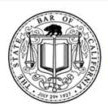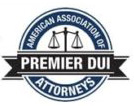In Section 23612, the California Vehicle Code states:
“(a) (1) (A) A person who drives a motor vehicle is deemed to
have given his or her consent to chemical testing of his or her
blood or breath for the purpose of determining the alcoholic content
of his or her blood, if lawfully arrested for an offense allegedly
committed in violation of Section 23140, 23152, or 23153.”
As far as the law is concerned, once you drive on California roads you are deemed to have impliedly consented to surrendering to a chemical test as part of a DUI investigation. This is what is referred to as “implied consent.”
DUI Punishments Are Aggravated if You Refuse to Submit to a Chemical Test in San Luis Obispo County
The California Vehicle Code Section 23577 States:
“23577. (a) If any person is convicted of a violation of Section 23152 or 23153, and at the time of the arrest leading to that conviction that person willfully refused a peace officer’s request to submit to, or willfully failed to complete, the chemical test or tests pursuant to Section 23612, the court shall impose the following penalties:
If the person is convicted of a first violation of Section 23152, notwithstanding any other provision of subdivision (a) of Section 23538, the terms and conditions of probation shall include the conditions in paragraph (1) of subdivision (a) of Section 23538.
If the person is convicted of a first violation of Section 23153, the punishment shall be enhanced by an imprisonment of 48 continuous hours in the county jail, whether or not probation is granted and no part of which may be stayed, unless the person is sentenced to, and incarcerated in, the state prison and the execution of that sentence is not stayed.
If the person is convicted of a second violation of Section 23152, punishable under Section 23540, or a second violation of Section 23153, punishable under Section 23560, the punishment shall be enhanced by an imprisonment of 96 hours in the county jail, whether or not probation is granted and no part of which may be stayed, unless the person is sentenced to, and incarcerated in, the state prison and execution of that sentence is not stayed.
If the person is convicted of a third violation of Section 23152, punishable under Section 23546, the punishment shall be enhanced by an imprisonment of 10 days in the county jail, whether or not probation is granted and no part of which may be stayed.
If the person is convicted of a fourth or subsequent violation of Section 23152, punishable under Section 23550 or 23550.5, the punishment shall be enhanced by imprisonment of 18 days in the county jail, whether or not probation is granted and no part of which may be stayed.
(b) The willful refusal or failure to complete the chemical test required pursuant to Section 23612 shall be pled and proven.”
As described above, the California Vehicle code enumerates increased punishments for those who the state of California can prove refused to submit to a chemical test at the time they were arrested for a DUI. Unfortunately, in our experience, such refusal cases seem to be fairly common in San Luis Obispo. Such a refusal triggers a sentencing enhancement that includes additional jail time for those convicted of a DUI. The Refusal allegation will be included in the formal charging document known as the complaint.
You are Free to Refuse the Preliminary Alcohol Screening Test, But Not the Evidentiary Chemical Test
Often times, as part of the DUI investigation, and prior to a law enforcement officer making an arrest, the officer will ask if you want to blow into a Preliminary Alcohol Screening Device. This is a device that like a “breathalyzer” measures blood alcohol concentration. This test is not considered a “chemical test” as the term is used in section 23577, nor a valid test for purposes of formal evidence in court, but it helps the officer determine whether a person is over the legal limit and therefore whether they should be arrested. The “implied consent” law does not apply to the PAS and thus refusing the PAS does not trigger increased punishment upon conviction for DUI. Thus, you can refuse the PAS if you would like, but you cannot refuse the chemical test without incurring additional criminal liability.
Refusing the PAS is Risky
While technically you are free to refuse the Preliminary Alcohol Screening (PAS) at the time you are investigated it is risky. First, as law enforcement often uses a breath test for the chemical evidentiary test, you may not be able to accurately distinguish which test you are being administered at any given time. Thus, you may mistakenly believe you are free to refuse a test, only to find out you refused the wrong one and now you are being charged with a refusal. On a first DUI this could cost you a year of a suspension on your driving privileges. Likewise, a dishonest officer may take your refusal on the PAS and put you down as refusing both tests. It is not a good idea to anger an investigating officer. Thus, it may be too risky to refuse a PAS, unless you really know what you are doing.
Increased License Suspension
The penalty for a Refusal on a first DUI is a one year suspension of your license. For most people, especially in California where we use our cars for almost all of our transportation, this is much worse than the added jail time. If it is a second DUI, or greater, within the last 10 years, then the suspension for a refusal will be two years or more. The punishments for a refusal, just in terms of the added license suspension, is so harsh that I recommend that you cooperate full in a DUI investigation, so as to not get accused of refusing the chemical test.
The Warrant Requirement. Missouri vs. McNeely
Last year (2013) the United States Supreme court made a landmark decision governing DUI blood draws in the case of Missouri Vs. Mcneely. In Missouri V. McNeely, the Supreme Court ruled that, in general, absent your consent, a warrant is required for a forced blood draw. Therefore, if you do not consent to a blood draw upon the request of an officer incident to your arrest for DUI, then the officer MUST get a warrant from a judge in order to lawfully force a blood draw. The two primary exceptions to the warrant requirement are if you consent to the blood draw, or if the officer can prove some other exigent circumstance that would necessitate moving ahead without a warrant. We are actually not sure what such circumstances might look like.
The Supreme Court ruled indicated that it is a violation of your 4th Amendment right against unreasonable search and seizure to force a blood draw without a warrant. San Luis Obispo law enforcement officers including county Sheriffs and CHP will normally get a warrant prior to forcing a blood draw. If they do not, then a skilled and experienced San Luis Obispo DUI Attorney may be able to have the evidence obtained by the warrantless forced blood-draw suppressed at trial.
San Luis Obispo DUI Refusal Cases Synopis
1. California Law dictates that driving on the roads in California gives law enforcement implied consent to administer a chemical test at the time of a DUI arrest.
2. Refusing to submit to a chemical test, if pleaded and proven, triggers enhanced penalties including a one year suspension of your drivers license for first time DUI’s and longer if it is a second DUI or greater within 10 years.
3. You can refuse a PAS but you cannot refuse a Chemical Test without facing severe penalties.
4. In McNeely V. Missouri, The United States Supreme Court declared that when an individual refuses to submit to a blood draw for purposes of a DUI, then the police must get a warrant prior to performing a forced blood draw.








